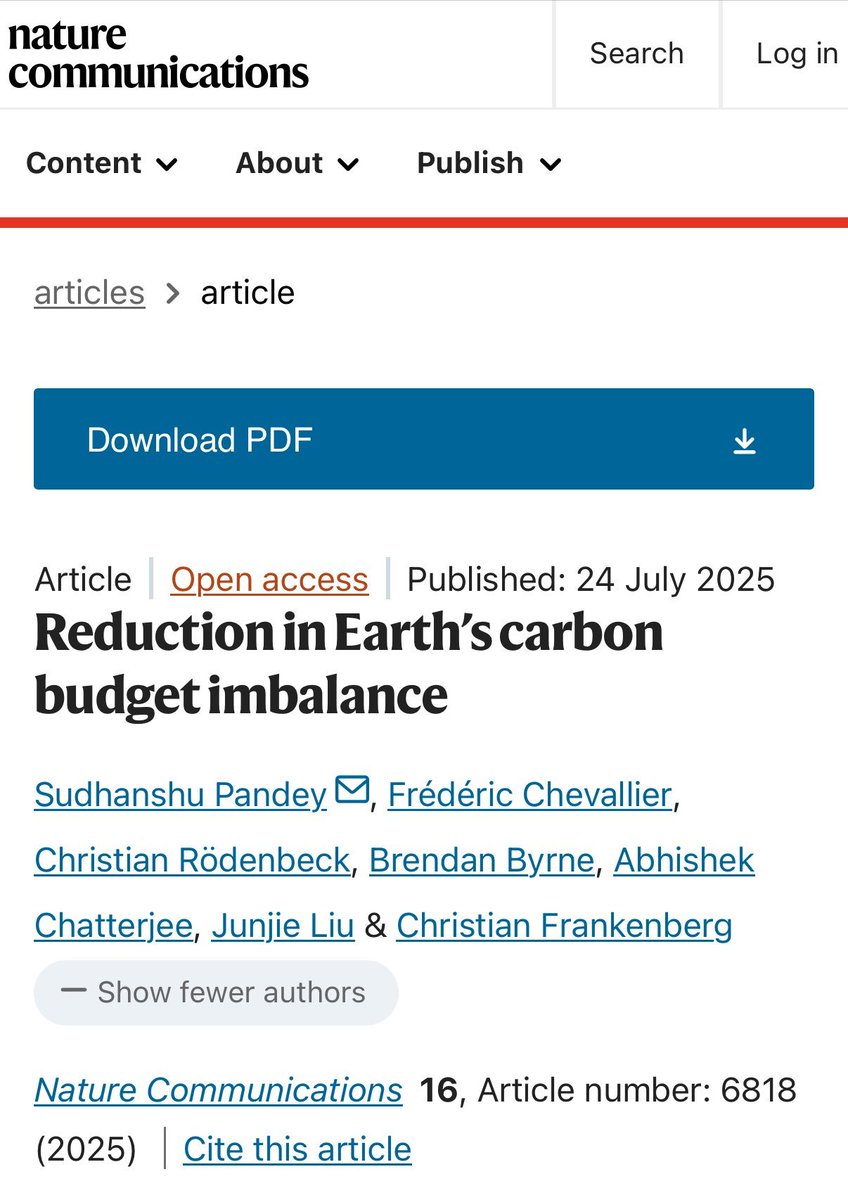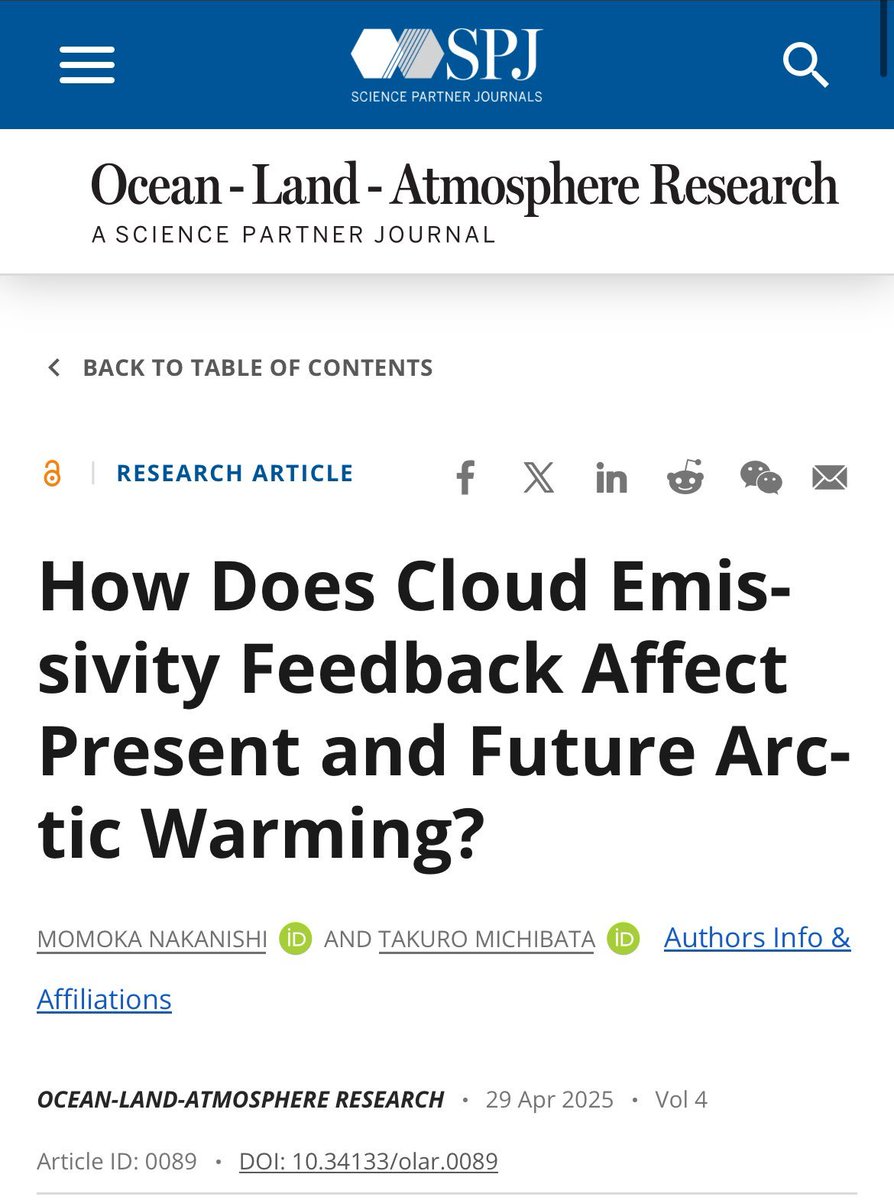Holy f!&$%# talking on national radio is nerve-wracking...
(especially when your fellow radio guests are climate gurus @KHayhoe and @KenCaldeira!)
Blanked a few times there, but fun discussion nonetheless.
There’s so much more to say about this, so thread coming soon...
(especially when your fellow radio guests are climate gurus @KHayhoe and @KenCaldeira!)
Blanked a few times there, but fun discussion nonetheless.
There’s so much more to say about this, so thread coming soon...
@KHayhoe @KenCaldeira OK, in the same vain as my previous thread “Should I cut out meat and dairy for the climate?” (bit.ly/2TJQh2l), it seems like the time is now right for a NEW THREAD:
“Should I stop flying for the climate?”
Here're my 2 cents... BUCKLE UP!
“Should I stop flying for the climate?”
Here're my 2 cents... BUCKLE UP!
@KHayhoe @KenCaldeira 1/ First, let’s acknowledge (own?) some ‘problems’ with #FlyingLess. As @drvox implies in this long thread, an individual's decision to fly will add an INFINITESSIMALLY SMALL amount of CO2 to the atmosphere (akin to adding a pebble of sand to a beach):
bit.ly/33M5PqK
bit.ly/33M5PqK
@KHayhoe @KenCaldeira @drvox 2/ In other words... WE WILL NOT SOLVE THE CLIMATE MITIGATION PUZZLE through individual action. We ultimately need COLLECTIVE-SCALE changes (to business-as-usual capitalism): regulating corporations; pricing incentives; smart investments; good policy!
bit.ly/2PjDLrZ
bit.ly/2PjDLrZ
@KHayhoe @KenCaldeira @drvox 3/ As @MichaelEMann points out in the above article, there’s also a DANGER in placing the onus for change on consumers (instead of CORPORATIONS, decision-makers, etc.)... that's a potential outcome when people become FIXATED on their carbon 'lifestyles'.
@KHayhoe @KenCaldeira @drvox @MichaelEMann 4/ Another problem: Only a small % of the population are responsible for the bulk of aviation emissions. Most people don’t fly, or just once/year. So there’s a danger in coming across as “preachy” to EVERYONE, when in fact it’s (usually) the WEALTHIEST few who are the problem. 

@KHayhoe @KenCaldeira @drvox @MichaelEMann 5/ Aviation offers tremendous benefits and opportunities which a majority of world hasn't experienced. As @arvindpawan1 has pointed out, there’s a risk that #FlyingLess takes on an IMPERIALIST tone (if it fails to differentiate WHO it’s asking to change).
bit.ly/2MpQtmF
bit.ly/2MpQtmF
@KHayhoe @KenCaldeira @drvox @MichaelEMann @arvindpawan1 6/ And another challenge (in some geographical contexts): There are sometimes NO VIABLE low-carbon alternatives to flying. This is a REAL PROBLEM in Canada, where LONG-DISTANCE train travel is often WORSE than flying on a per-passenger basis!
@KHayhoe @KenCaldeira @drvox @MichaelEMann @arvindpawan1 7/ So.. #FlyingLess needs to tread carefully in its messaging. The research shows that if people feel ‘attacked’ or their identities called into question, it can result in a “boomerang effect” wherein they just return to their original behaviour.
bit.ly/2MoR6Ni
bit.ly/2MoR6Ni
@KHayhoe @KenCaldeira @drvox @MichaelEMann @arvindpawan1 8/ OK, so does this mean there’s NO VALUE in #FlyingLess?
@KHayhoe @KenCaldeira @drvox @MichaelEMann @arvindpawan1 9/ Before we get to THE VALUE OF FLYING LESS, let’s talk about WHY aviation specifically is a PROBLEM. As @Peters_Glen has pointed out, at a global level aviation is only really a sliver of the CO2 pie...
bit.ly/31PgtLS
bit.ly/31PgtLS
@KHayhoe @KenCaldeira @drvox @MichaelEMann @arvindpawan1 @Peters_Glen 10/ BUT... CO2 is only PART of the problem. The world-leading authorities on aviation & climate (David Lee et al.) noted that in 2005 aviation was responsible for 4.9% of RADIATIVE FORCING. It’s 15 years later now, and that’s gonna be higher I’m sure...
bit.ly/2zaSxWM
bit.ly/2zaSxWM
@KHayhoe @KenCaldeira @drvox @MichaelEMann @arvindpawan1 @Peters_Glen 11/ 4.9% may not SOUND like a lot, but consider that only 6% of the world flies each year. That makes aviation an activity with an OUTSIZED impact (compared to, say, meat consumption - in which 95% of the world participates – at 14.5% of global GHGs).
bit.ly/2HdM6a0
bit.ly/2HdM6a0
@KHayhoe @KenCaldeira @drvox @MichaelEMann @arvindpawan1 @Peters_Glen [that’s another qualm I have w meat comparison; we only ever discuss climate footprint of FLIGHTS. That 14.5% is for the ENTIRE LIVESTOCK SUPPLY CHAIN, including deforestation].
I wonder... what’s the carbon footprint of the ENTIRE AVIATION SUPPLY CHAIN?
I wonder... what’s the carbon footprint of the ENTIRE AVIATION SUPPLY CHAIN?
@KHayhoe @KenCaldeira @drvox @MichaelEMann @arvindpawan1 @Peters_Glen OK, but isn’t TECHNOLOGY reducing aviation emissions? To an extent, yes. Biofuels (especially new gen. which don’t impact food supply); low-weight materials; baggage surcharges; improved air traffic ALL help. BUT these efficiency gains are being outstripped by DEMAND GROWTH. 

@KHayhoe @KenCaldeira @drvox @MichaelEMann @arvindpawan1 @Peters_Glen 14/ Right... but what about global governance? Doesn’t the UN’s Carbon Offsetting and Reduction Scheme for Aviation (CORSIA) plan to achieve “carbon-neutral growth from 2020”? Yeah, about that...
carbonbrief.org/aviation-consu…
carbonbrief.org/aviation-consu…
@KHayhoe @KenCaldeira @drvox @MichaelEMann @arvindpawan1 @Peters_Glen 15/ So... Despite its many benefits, aviation is PRESENTLY a real challenge for climate change mitigation – this may change in a few decades w electric ✈️, but as the IPCC has pointed out, we need to start rapid DECARBONIZATION NOW: 

@KHayhoe @KenCaldeira @drvox @MichaelEMann @arvindpawan1 @Peters_Glen 16/ And so we arrive at #FlyingLess. I can think of a number of reasons why – despite all the caveats – one may want to take part! First, as @bsaxifrage has shown, flying IS often one of the largest contributions, so cutting back can make a significant PERSONAL impact: 

@KHayhoe @KenCaldeira @drvox @MichaelEMann @arvindpawan1 @Peters_Glen @bsaxifrage 17/ Second, as @GretaThunberg has said, this is about demonstrating the URGENCY of climate change at the political level. It’s a form of protest. It’s NOT about signalling ‘virtue’ or telling people what to do, but rather signalling POLITICAL PRIORITIES.
bit.ly/2Zaz9UE
bit.ly/2Zaz9UE
@KHayhoe @KenCaldeira @drvox @MichaelEMann @arvindpawan1 @Peters_Glen @bsaxifrage @GretaThunberg 18/ Third: As @DoctorVive points out in this MAGNIFICENT THREAD (and this is especially the case for those of us in the climate community), flying less “increases our public credibility and inoculates us against the charge of moral hypocrisy”. Well said!
bit.ly/2z5KlXU
bit.ly/2z5KlXU
@KHayhoe @KenCaldeira @drvox @MichaelEMann @arvindpawan1 @Peters_Glen @bsaxifrage @GretaThunberg @DoctorVive 19/ Fourth, by talking about the benefits of #FlyingLess, or the fruitful experiences had whilst taking other transport modes or digital conferencing, we are DEMONSTRATING that low-carbon life is not so bad after all, not the sacrifice some believe it to be!
@KHayhoe @KenCaldeira @drvox @MichaelEMann @arvindpawan1 @Peters_Glen @bsaxifrage @GretaThunberg @DoctorVive 20/ IF done right (and that’s a big ‘IF’) – #FlyingLess can be INCLUSIVE, SUPPORTIVE, COLLABORATIVE, and CONTAGIOUS!
Must read on this (h/t @seleross): maisonneuve.org/article/2019/0…
Must read on this (h/t @seleross): maisonneuve.org/article/2019/0…
@KHayhoe @KenCaldeira @drvox @MichaelEMann @arvindpawan1 @Peters_Glen @bsaxifrage @GretaThunberg @DoctorVive @seleross 21/ So, bottom line: Is there value in #FlyingLess? Yes there is.
✈️Travel responsibly
✈️If you must fly, make it count!
✈️Join the movement! (See @flyingless ; @ClimateHuman; For academics: tiny.cc/e6gm9y)
✈️Channel your action to the COLLECTIVE scale.
✈️Travel responsibly
✈️If you must fly, make it count!
✈️Join the movement! (See @flyingless ; @ClimateHuman; For academics: tiny.cc/e6gm9y)
✈️Channel your action to the COLLECTIVE scale.
@KHayhoe @KenCaldeira @drvox @MichaelEMann @arvindpawan1 @Peters_Glen @bsaxifrage @GretaThunberg @DoctorVive @seleross @flyingless @ClimateHuman 22/ As for the latter... Write an MP; join a campaign; run for office; sign a petition, protest, donate, join with others, etc.
(Here’re ideas for regulatory changes to reduce aviation GHGs):
bit.ly/2MenrDm
/fin
(Here’re ideas for regulatory changes to reduce aviation GHGs):
bit.ly/2MenrDm
/fin
• • •
Missing some Tweet in this thread? You can try to
force a refresh

























